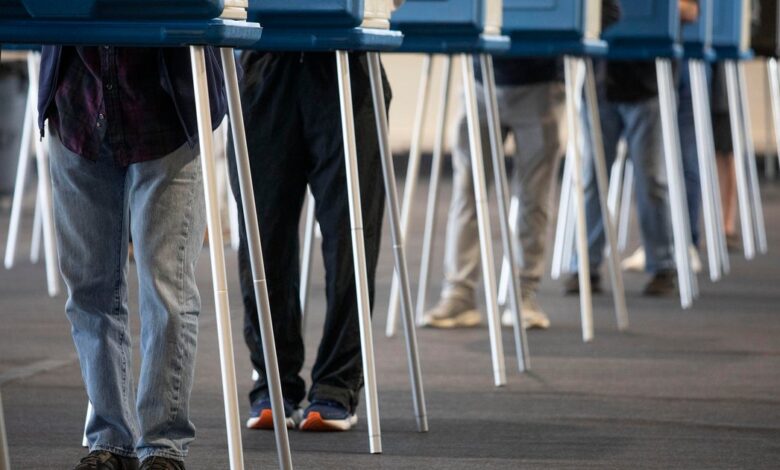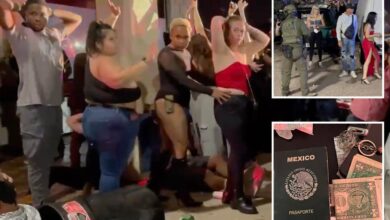Michigan joins 18 other states to block Trump’s election order, saying it violates the Constitution

Democratic officials in 19 states, including Michigan, have taken legal action against President Trump’s recent efforts to alter election procedures across the United States. They argue that the President’s executive order infringes upon states’ rights to manage their own elections in accordance with the Constitution.
The lawsuit, filed on Thursday, marks the fourth legal challenge against the executive order issued by President Trump. The lawsuit aims to block certain provisions of the order, such as the requirement for individuals to provide proof of citizenship when registering to vote and the mandate that all mail-in ballots must be received by Election Day.
In response to the lawsuit, White House spokesperson Harrison Fields defended the proof-of-citizenship requirements as “common sense” measures and criticized the objections raised by Democrats as “insane.”
President Trump’s executive order alleges that the U.S. has failed to adequately safeguard elections, despite election officials asserting that recent elections have been secure. There is no evidence of widespread fraud, even during the 2020 election when Trump lost to Joe Biden.
The order reflects Trump’s ongoing grievances about the electoral process in the U.S. Following his victory in 2016, Trump falsely claimed that millions of people had voted illegally, and in 2020, he alleged a “rigged” election without evidence of widespread fraud or manipulation.
While Trump argues that his order is necessary to prevent illegal voting by noncitizens, studies have shown that such occurrences are rare. Some Republican state election officials have commended the order, believing it could help combat voter fraud and improve voter registration data.
However, the order also mandates states to reject any mail-in or absentee ballots received after Election Day and threatens to withhold federal funding from states that fail to comply. This requirement has sparked concerns about federal overreach and the infringement of states’ rights to regulate their own election processes.
Michigan Attorney General Dana Nessel and New York Attorney General Letitia James have both criticized the executive order as unconstitutional and an authoritarian power grab. They argue that the order undermines states’ authority to uphold their election laws as enshrined in their respective constitutions.
California Attorney General Rob Bonta condemned Trump’s attempt to impose “sweeping voting restrictions” and disenfranchise voters nationwide. Similarly, the attorney general and secretary of state in Nevada defended their state’s election integrity and rejected the President’s interference in their electoral procedures.
The lawsuit, filed by the Democratic attorneys general of 19 states, contests the legality and necessity of the executive order. Critics argue that the order could disenfranchise eligible voters who lack the required documentation, such as a U.S. passport or REAL ID-compliant driver’s license indicating citizenship.
David Becker, CEO of the Center for Election Innovation & Research, characterized the order as a federal overreach into state and local election administration, challenging the constitutional authority of state governments.
Democrats contend that many Americans face barriers to obtaining the necessary documents to prove citizenship, potentially disenfranchising eligible voters. The complexity of the requirements, such as name changes for married women, could further complicate the voter registration process.





